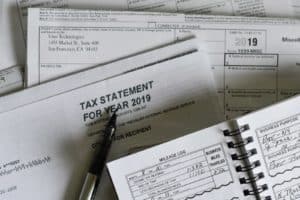LEFI: Definition and Objectives
On January 1, 2025, changes to the law on the tax valuation of certain buildings in Geneva came into force. This reform aims to modernize the canton's real estate tax system in terms of estimating the taxable value of property.
Until now, the laws governing the tax valuation of real estate often undervalued it. The 2025 reform aims to change this, by using the market value for the assessment. This would also put all property owners on an equal footing.
Key LEFI Measures
With the adoption of the law on the tax valuation of certain buildings in Geneva (LEFI)For homeowners, several things will change.
12% Increase in Taxable Value
To better reflect current tax realities, all properties purchased before December 31, 2014 will have their tax value increased by 12%. This means that homeowners now have to pay higher taxes.
The taxable value will continue to increase each year, but will be capped at 1% to avoid too drastic an increase. Owners of more recent homes are not affected by these increases.
The 12% revaluation is generally not applied in the following cases:
- If the tax value of the property has been estimated by an expert at its real value (market value) after December 31, 2013
- If the value has been calculated on the basis of construction cost for buildings constructed after December 31, 2013
- If the value was determined after a sale or an inheritance that took place after December 31, 2013, according to a former tax rule
Wealth Tax Decreases
To compensate for this increase in taxable value, all homeowners affected by this increase will see their wealth tax reduced by 15%. This reduction does not entirely eliminate the 12% increase, but it does lighten the tax burden for homeowners.
Reduction in Additional Property Tax (IIC)
Supplementary real estate tax is levied when you own real estate in the canton of Geneva. You must pay this tax at the end of each tax period. The tax is calculated on the basis of the value of the property.
On the other hand, your income or your place of residence are not taken into account for its calculation. In other words, even if you live in another canton or even another country, as long as you have a property in Geneva, you will be subject to this tax.
Until January 1, 2025, this tax was 1‰. After this date, it was divided by 5, with a current rate of 0,2 ‰.
Increase in Tax on Real Estate Profits and Gains (IBGI)
If you make a profit (i.e. the sale price exceeds the purchase price) on the sale of a property (in the sense of real estate) in Geneva, you will be subject to real estate gains tax.
This tax will rise to 2% with the law on the tax valuation of certain buildings, but only if you are selling a building that is more than 25 years old; you are not concerned if your property is more recent.
Possible Remedies
If you wish to contest certain aspects of this new LEFI reform, you should know that this is possible in certain cases. In fact, if you feel that your property has not appreciated as much, you have the right to request a reduction or even an abolition of the 12% revaluation.
You can do this as soon as you receive your tax slip showing the new increase.
Frequently Asked Questions
When did LEFI come into force?
The reform came into force on January 1, 2025.
Why was this reform introduced?
Because the old rules often undervalued property. The aim is to reflect market realities more accurately and ensure fairer taxation between owners.
Which goods are affected by the 12 % increase?
All properties purchased before december 31, 2014 are affected by this upgrade.
Are there any exceptions to this increase?
Yes, for example, if the value of the property has already been estimated at its actual value or calculated according to specific criteria after December 31, 2013, the increase does not apply.
Will taxable value continue to rise?
Yes, but it will be capped at 1 % per year to avoid too steep an increase.
They will pay more tax due to the increase in taxable value, but their wealth tax will be reduced by 15 % to partially compensate.
- The request must be sent within 60 days following the end of the fiscal period during which sales fell below CHF 100,000.
- In the event of cessation of activity, the request must be submitted within 30 days following termination.







